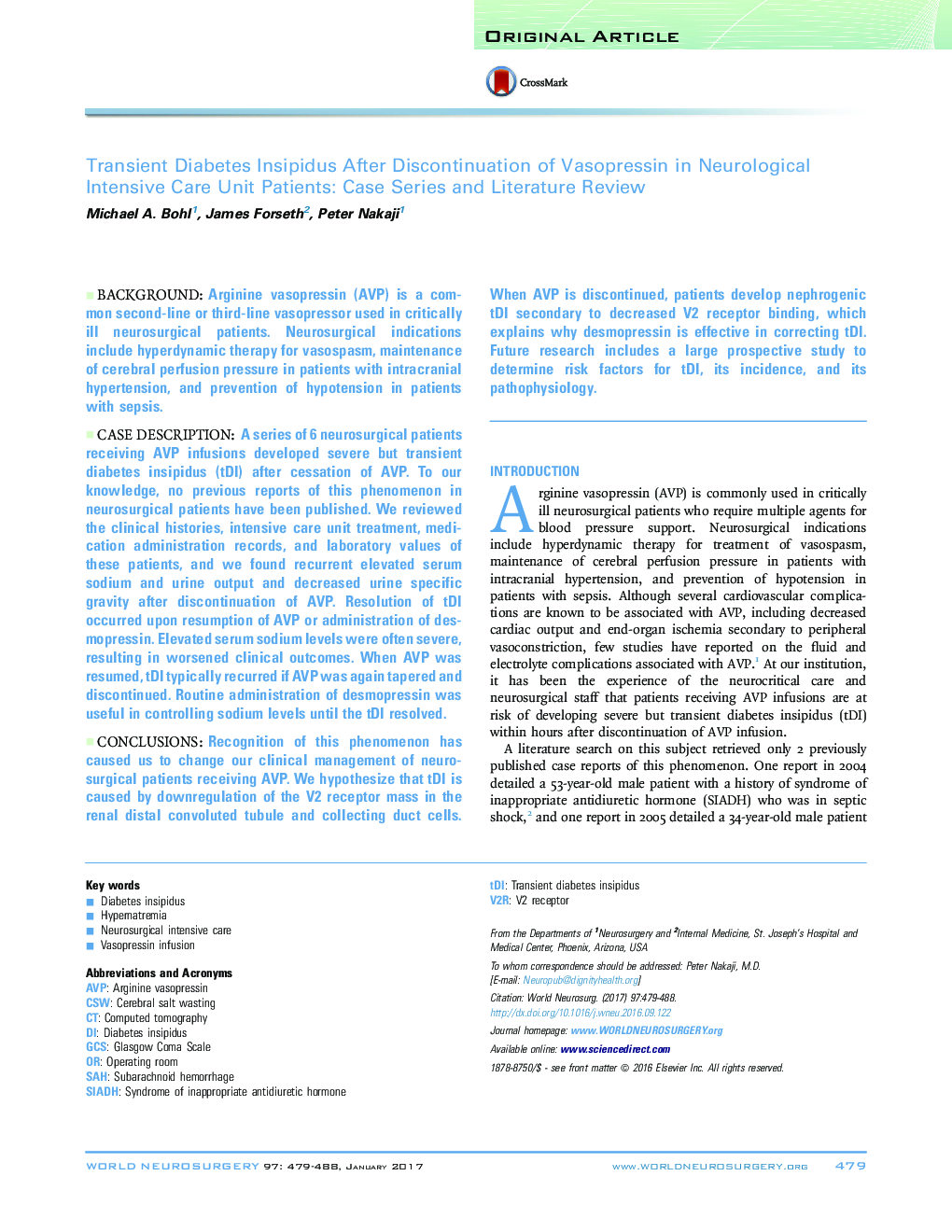| کد مقاله | کد نشریه | سال انتشار | مقاله انگلیسی | نسخه تمام متن |
|---|---|---|---|---|
| 5634744 | 1581458 | 2017 | 10 صفحه PDF | دانلود رایگان |
BackgroundArginine vasopressin (AVP) is a common second-line or third-line vasopressor used in critically ill neurosurgical patients. Neurosurgical indications include hyperdynamic therapy for vasospasm, maintenance of cerebral perfusion pressure in patients with intracranial hypertension, and prevention of hypotension in patients with sepsis.Case DescriptionA series of 6 neurosurgical patients receiving AVP infusions developed severe but transient diabetes insipidus (tDI) after cessation of AVP. To our knowledge, no previous reports of this phenomenon in neurosurgical patients have been published. We reviewed the clinical histories, intensive care unit treatment, medication administration records, and laboratory values of these patients, and we found recurrent elevated serum sodium and urine output and decreased urine specific gravity after discontinuation of AVP. Resolution of tDI occurred upon resumption of AVP or administration of desmopressin. Elevated serum sodium levels were often severe, resulting in worsened clinical outcomes. When AVP was resumed, tDI typically recurred if AVP was again tapered and discontinued. Routine administration of desmopressin was useful in controlling sodium levels until the tDI resolved.ConclusionsRecognition of this phenomenon has caused us to change our clinical management of neurosurgical patients receiving AVP. We hypothesize that tDI is caused by downregulation of the V2 receptor mass in the renal distal convoluted tubule and collecting duct cells. When AVP is discontinued, patients develop nephrogenic tDI secondary to decreased V2 receptor binding, which explains why desmopressin is effective in correcting tDI. Future research includes a large prospective study to determine risk factors for tDI, its incidence, and its pathophysiology.
Journal: World Neurosurgery - Volume 97, January 2017, Pages 479-488
